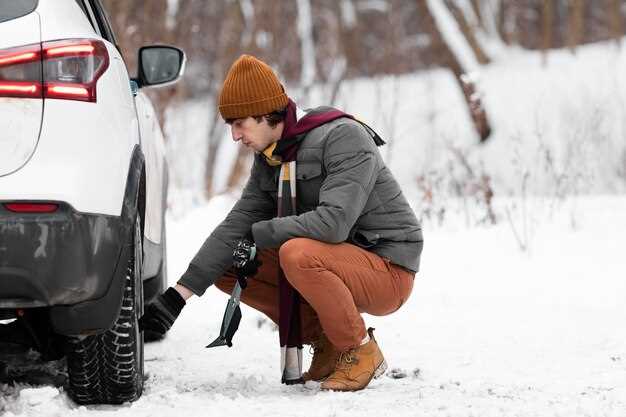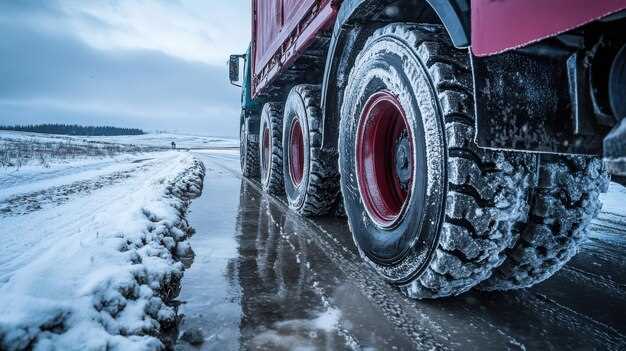
Proper care for your trailer tires is essential, especially when facing harsh weather conditions. Whether it’s the scorching heat of summer or the freezing cold of winter, your tires are subjected to various environmental stressors that can significantly impact their lifespan and performance. Taking proactive measures can help ensure that your tires remain in optimal condition, ultimately contributing to the safety and efficiency of your travels.
One crucial aspect of maintaining your trailer tires is weatherproofing. This process involves taking specific steps to protect your tires from UV rays, moisture, and extreme temperatures. By incorporating weatherproofing techniques into your tire maintenance routine, you can minimize the risk of damage and enhance the overall durability of your tires. Understanding and addressing the unique challenges posed by different weather conditions will keep your trailer prepared for any journey ahead.
In this article, we will explore effective tips and strategies for protecting your trailer tires from harsh weather. From regular inspections to choosing the right tire cover, these practices will help extend the life of your tires and ensure that they perform at their best, no matter the season. By prioritizing tire care, you can enjoy peace of mind on the road.
Maintaining Optimal Tire Pressure Under Temperature Fluctuations

Maintaining the correct tire pressure for your trailer is crucial, especially when facing significant temperature fluctuations. Changes in weather can cause air in the tires to expand or contract, leading to underinflation or overinflation. Regularly checking tire pressure is an essential part of tire care that helps ensure safety and performance.
When temperatures drop, the air inside the tires contracts, resulting in lower tire pressure. Cold weather can decrease pressure by about 1 PSI for every 10°F drop in temperature. Conversely, high temperatures can cause air to expand, potentially increasing tire pressure beyond the recommended levels. To combat these issues, it’s important to adjust your trailer’s tire pressure according to the current weather conditions.
Using a reliable tire pressure gauge can help you monitor the pressure regularly. Check the pressure when the tires are cold, preferably before your trailer has been driven for a significant distance. This practice will give you the most accurate reading. Maintain tire pressure at the manufacturer’s recommended levels, which can usually be found on a label on the trailer or in the owner’s manual.
In addition to regular inspections, consider implementing weatherproofing measures to further protect your trailer tires. Using tire covers when parked for long periods can shield them from extreme temperatures and UV exposure, which can degrade the rubber over time. Ensuring your tires have adequate tread and are free of any damage is also essential for maintaining proper performance and safety.
By taking these simple yet effective steps to manage tire pressure and incorporate weatherproofing solutions, you can enhance the longevity and reliability of your trailer tires, ensuring they perform optimally regardless of the weather conditions.
Choosing the Right Type of Tire for Extreme Conditions

Selecting the appropriate tire for extreme weather conditions is crucial for maintaining safety and performance. When faced with harsh environments, consider tires specifically designed for weatherproofing against heavy rain, snow, or extreme heat. Look for features such as deep treads, which provide better grip and enhance traction on slippery surfaces.
In addition, pay attention to the tire’s rubber composition. High-quality tires made from durable materials can withstand temperature fluctuations and resist wear caused by harsh conditions. Some tires even incorporate technology that allows them to adapt to varying weather patterns, providing reliable handling and stability.
Regular care of your tires is equally important. Check the tire pressure frequently, as extreme temperatures can cause fluctuations, leading to underinflation or overinflation. Ensure that tires are properly aligned and balanced to prevent uneven wear, which can compromise their performance in challenging environments.
Investing in the right type of tire and maintaining it effectively will not only enhance the durability of your trailer but also ensure your safety while on the road during extreme weather conditions.
Implementing Protective Covers and Storage Solutions for Trailers
One of the most effective ways to protect trailer tires from harsh weather conditions is by using high-quality protective covers. These covers are designed to provide a barrier against UV rays, rain, snow, and debris, ensuring that the tires remain in good condition for longer periods. When selecting a cover, opt for a weatherproofing material that is both durable and breathable to prevent moisture buildup while keeping damaging elements at bay.
In addition to covers, proper storage solutions play a crucial role in tire longevity. When not in use, trailers should be stored in a sheltered area, such as a garage, carport, or enclosed shed. This not only protects the tires from extreme temperatures but also minimizes exposure to harmful weather conditions. If indoor storage isn’t feasible, consider utilizing a high-quality tarp or portable shelter designed for trailers, ensuring it remains securely fastened to prevent wind damage.
Regular maintenance checks are essential even when the trailer is stored away. Inspect the tires for any signs of wear or damage, and maintain appropriate tire pressure. This helps in reducing flat spots that can occur from prolonged storage. By combining protective covers with smart storage practices, you can significantly extend the life of your trailer tires and ensure they are ready for safe travel whenever you need them.





